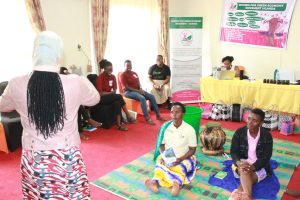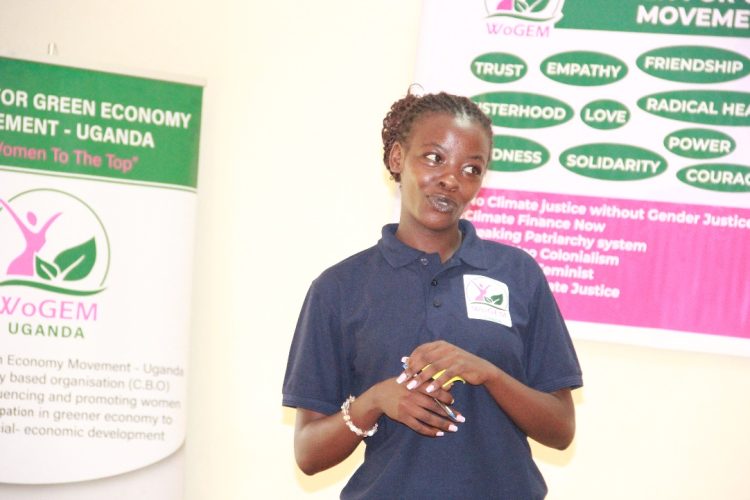OPINION
In Kikuube District, a significant number of girls are forced to leave school, leaving behind their dreams and potential. This dropout crisis is not just an educational issue but is intricately linked to deeper socio-economic and cultural factors that perpetuate cycles of poverty, gender inequality, and violence.
Reports suggest that over 50% of girls in Kikuube District do not finish their primary education. This statistic paints a picture of an education system that is failing a significant portion of the population, particularly young girls. Dropping out of school at a young age often results in a lifetime of disadvantages: limited economic opportunities, poor health outcomes, and an increased likelihood of early marriage and child birth. Girls who drop out of school often face pressure to marry early, often as a result of poverty, social norms, or family expectations. This societal expectation can be seen as a means to relieve financial burdens, as families may view early marriage as a way of ensuring the survival or stability of their daughters. Unfortunately, early marriages limit a girl’s ability to contribute economically, keep her in poverty, and expose her to risks such as domestic violence, limited decision-making power, and early pregnancies.
Kikuube District, like many areas with high dropout rates, faces significant levels of poverty. For many families, the cost of education, such as school fees, uniforms, and supplies, can be unaffordable. Additionally, lack of access to basic amenities like sanitation facilities in schools can deter families from sending their daughters to school. Girls are especially vulnerable when there are no proper sanitation facilities for menstruating students, leading them to miss school or drop out altogether. Gender inequality is a significant driver of educational disparity. In many communities, girls are often seen as less important than boys, and traditional gender roles limit their access to education. Parents may prioritize educating sons, considering it a better investment for the family’s future, while daughters are often seen as future wives and mothers, not as future professionals or leaders. These cultural expectations contribute to the high dropout rate and the perpetuation of gender-based discrimination.
The Cycle of Poverty and Injustice
When girls are denied an education, they become trapped in a vicious cycle. Their inability to finish school limits their earning potential, which in turn limits their economic independence. This often leads to continued reliance on their families, or worse, on their husbands once they are married off.
The economic impact of a lack of education is far-reaching. Without an education, young women are more likely to engage in low-wage, informal labor, and their chances of breaking out of poverty are greatly diminished. Educated women tend to earn higher wages, invest in their families, and contribute more to their communities, creating a positive ripple effect. However, when girls do not have access to education, they are often confined to jobs with limited pay and little security, perpetuating a cycle of poverty.
Early pregnancies resulting from child marriages are another devastating consequence of early school dropout. Girls who become mothers at a young age are more likely to experience complications during childbirth and are at greater risk of maternal mortality. Their health outcomes are often poorer, and they may also face issues like malnutrition, poverty, and lack of proper healthcare, further diminishing their quality of life.
Lack of education also severely limits a girl’s ability to participate in societal decision-making processes. Educated girls are more likely to engage in political activities, advocate for their rights, and contribute to the advancement of their communities. On the other hand, girls who are deprived of education often face lifelong social exclusion and are less likely to take part in community leadership or social activism.
Breaking the Cycle of Poverty and Injustice
Addressing the dropout crisis in Kikuube District requires a multi-faceted approach that tackles the root causes of the problem. Several interventions can help mitigate the factors that lead to school dropout and create a path for girls to access education and realize their potential.
One of the fundamental steps is to improve the infrastructure of schools in Kikuube District. This includes building more schools, especially in remote areas, so that girls don’t have to travel long distances to get an education. Access to education should not be hindered by geographical barriers. Ensuring that schools have proper sanitation facilities is essential for keeping girls in school. Having access to clean, private toilets can reduce absenteeism, particularly during menstruation
Offering scholarships to disadvantaged girls can help alleviate the financial burden on families. Financial support can ensure that girls don’t drop out due tos chool fees or the inability to afford uniforms or supplies. Additionally, conditional cash transfers to families could be introduced to encourage the education of girls.
Creating economic opportunities for women and girls can reduce the pressure on families to marry off their daughters or pull them out of school. Providing small loans or supporting local entrepreneurship initiatives can empower women and girls financially. This also includes creating job opportunities that can employ women and reduce their economic vulnerability.
Programs that target poverty reduction at the family level can help break the cycle of economic hardship. These programs can provide support to families, helping them manage the cost of living and invest in their children’s future education.
Enacting and strictly enforcing laws that prevent child marriage and protect girls from domestic violence is crucial. Governments and NGOs must work together to ensure that these laws are not only in place but are also effectively implemented.
Community-based awareness campaigns can challenge harmful cultural norms and raise awareness about the dangers of child marriage and the importance of education for girls. These campaigns can target both men and women, addressing issues of gender inequality and educating families on the long-term benefits of educating their daughters.
Encouraging girls to participate in extracurricular activities, sports, and leadership programs can build their self-esteem, resilience, and confidence. These programs help girls see their worth and potential and encourage them to pursue their educational and professional dreams.
A Call for Urgent Action
The dropout crisis in Kikuube District is an urgent issue that demands immediate and sustained intervention. The girls who are dropping out today are the future of their community, and by ensuring they stay in school, society will be investing in a brighter, more prosperous future.
By improving access to education, addressing poverty, ending child marriage, and empowering girls, we can break the cycle of inequality and create a new generation of educated, confident, and capable young women. The future of Kikuube District and the broader world depends on ensuring that every girl has the opportunity to dream, to learn, and to lead.
By Leticia Ahirirwe, Communications officer, Women for Green Economy Movement.
E-mail: ahirirweleticia100@gmail.com








































